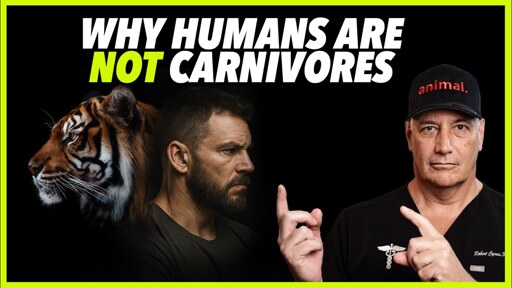Evolutionary #SCIENCE explains why #HUMANS ARE NOT DESIGNED TO BE PURE CARNIVORES LONG TERM. IT IS ALL ABOUT #INSULIN AND #GLP-1. These #FACTS will clash with your BELIEFS and OPINIONS but there is only one set of facts. #CARNIVORES: WHY A PURE CARNIVORE DIET IS NOT A GOOD LONGTERM DIET FOR MOST PEOPLE. Dr Cywes discussed the #evolutionary biology used by obligate carnivores v omnicarnivores v sugar eaters. #insulinsuppression v #insulinresistance. This is true for #cancer and #Alzheimer’s disease. Know the truth for yourself. Know the pros and cons then make a personal decision – and it’s OK to change it up. Know the scientific truth about how your body works. #carnivore #keto #diabetes #addiction #fatadapted #ketosis
🧠 Key Differences from Humans: Species GLP-1 Stimulus Notes Humans Carbs, fats, some protein GLP-1 mostly studied for glycemic control Cats (carnivores) Protein, fat GLP-1 still functions, but different stimuli
Very low insulin + high glucagon Gluconeogenesis + hyperglycemia
Lack of GLP-1/GIP Less insulin control, inflammation
Literature reviewed: LMHR studies doi.org/10.1161/CIRCIMAGING.123.016481 Soto-Mota A, Norwitz NG, Manubolu VS, Kinninger A, Wood TR, Earls J, Feldman D, Budoff M. Plaque Begets Plaque, ApoB Does Not: Longitudinal Data From the KETO-CTA Trial. JACC Adv. 2025 Mar 18:101686. doi: 10.1016/j.jacadv.2025.101686. Epub ahead of print. PMID: 40192608. doi: 10.1016/j.jacadv.2024.101109. PMID: 39372369; PMCID: PMC11450898
summerizer
WHY HUMANS ARE NOT CARNIVORES 🥩🥩
Dr. Robert Cywes explores the reasons why humans cannot sustain a long-term pure carnivore diet. He discusses the physiological differences between obligate carnivores and humans, highlighting insulin mechanics, GLP-1 hormone dependence, and how these factors influence our diet and health. Through an evolutionary lens, he explains that while a carnivore diet may be beneficial for weight loss and managing diabetes in the short term, humans require a balance of nutrients, including carbohydrates, to maintain proper hormonal function and metabolic health.
Key Points
Carnivore Diet Benefits
A pure carnivore diet can rapidly correct insulin resistance, aid in weight loss, and be effective for managing diabetes. Dr. Cywes advises this approach for short-term health improvements.
Insulin Production Mechanisms
Both obligate carnivores and humans require insulin to use sugar. However, the mechanisms triggering insulin release differ; carnivores rely heavily on amino acids from protein, while humans depend more on carbohydrates to trigger insulin through the GLP-1 hormone.
Limitations of Pure Carnivore for Humans
Humans cannot thrive on a strict carnivore diet long-term without suffering from insulin suppression. Our physiology requires some carbohydrates to stimulate GLP-1 production for adequate insulin response.
Physiological Adaptations
Humans are facultative carnivores, meaning we can eat a carnivore-heavy diet but cannot fully rely on it. Long-term absence of carbohydrates leads to downregulation of insulin production and GLP-1 signaling, akin to complications from standard diets.
Comparison with Hummingbirds
Hummingbirds, which consume high carbohydrate diets, do not develop diabetes due to their evolutionary adaptations that allow them to rapidly clear glucose from their system, contrasting with the slower glucose metabolism of humans.
Conclusion on Diet Balance
Dr. Cywes emphasizes that while a carnivore diet can be beneficial, a balanced approach that includes some carbohydrates is essential for human health to prevent long-term metabolic issues.



Insulin sparing, they prime the pancreas to prestore insulin so it can be released quickly, because now we are in a carbohydrate rich environment.
I think the term of art is physiological insulin resistance, which is a misnomer. The body is still exquisitely sensitive to insulin, it’s just that it’s not preloaded the insulin into the pancreas for quick release.
I don’t get this either. He’s a smart guy. He’s seen continuous glucose monitors, he even has a couple videos talking about them. So he knows exactly what the glucose levels are on long-term carnivores. His explanation is a mechanistic one not an observed one. And to me that means he’s just looking for some excuse